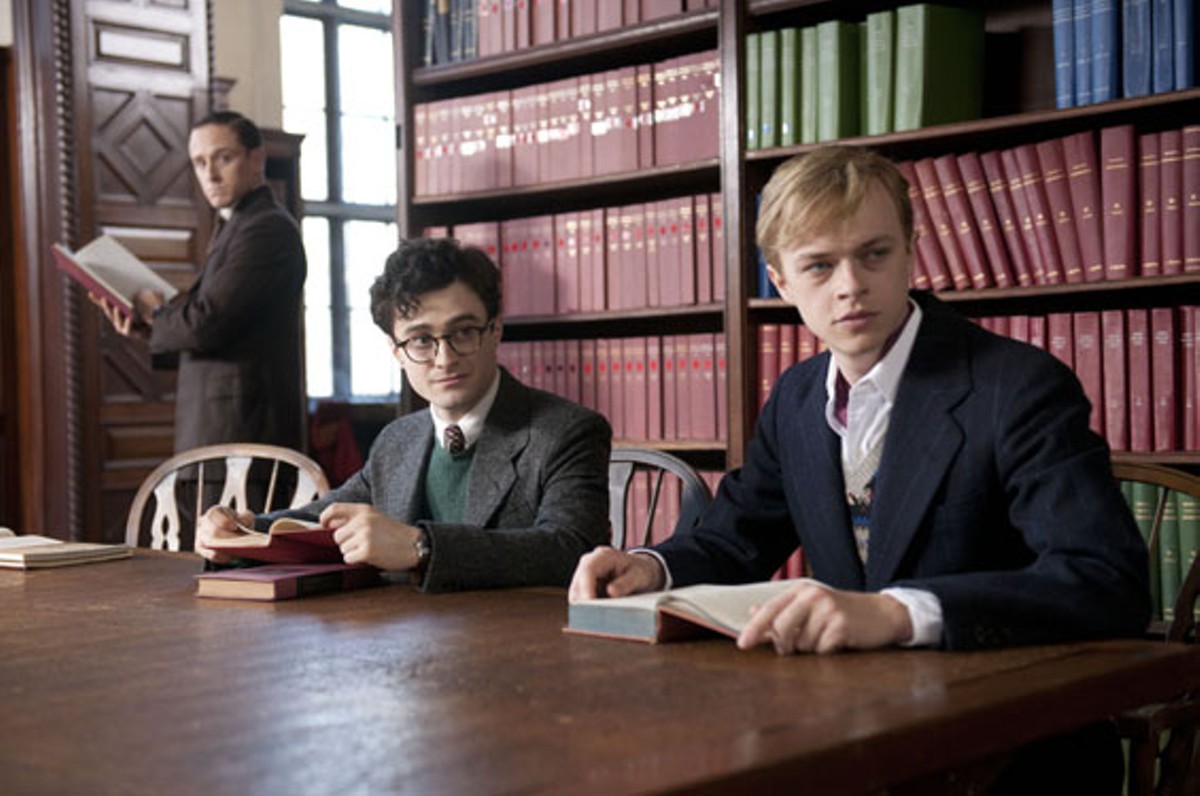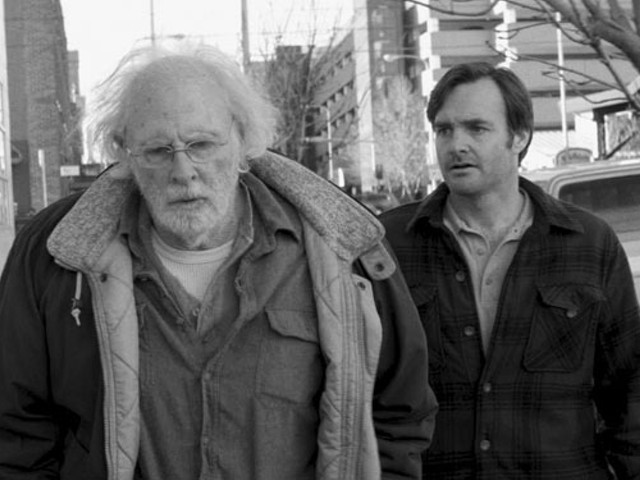How is it that no one had yet made the Lucien Carr–David Kammerer murder story into a movie? It's an irresistible tall tale from the Beat back catalogue — how, once upon a time in the mid-'40s, the finger-snapping legends-to-be (Ginsberg, Kerouac, Burroughs) all coalesced around the radiant rebel Carr while he was a Columbia undergrad and discovered hard partying and transcendental literary pretension, even as lovelorn chickenhawk Kammerer hounded the golden boy until Carr was forced to knife the older man and dump his body in the Hudson. Just picture it: wine, hash, jazz dives, pre-Beat manifestos, taboos sliced and diced, barely sublimated homosexual passion, all climaxing in a capital crime that scatters the group and sends Carr to prison.
Fascination with all things Beat and beautiful has fluctuated over the decades but may be cresting; besides Howl (2010), On the Road (2012), and the upcoming Big Sur (2013), director John Krokidas's little ranting costume-drama take on the Carr Affair may've been inevitable. Of course, the movie, the filmmaker's first, lurches from one biopic cliché to the next, each illustrative of the narrative predetermined by history: legendary meetings, famous pranks, visits to downtown bohemian hovels, confrontations between Kammerer (Michael C. Hall) and Carr (Dane DeHaan, who's something of a spitting image), and pivotal moments in the dawning awareness of Ginsberg (Daniel Radcliffe), through whose virginal eyes the whole hip tragedy unfolds.
Clearly, the stunt casting, the biopic's main course, is what's hot on the menu here. In Radcliffe's tiny hands Ginsberg is a tousled, pubertal Harry Potter but without the temper or quick thinking. This Ginsberg is mostly a mousey observer, pining silently for Carr and pissing off his formalist lit prof with a scandalous "what about Walt Whitman?" The story is framed as Ginsberg's coming of age, but, as in so many films working from life, the arc must be forced and then buttoned down with the inevitable paragraphs of life summary at movie's end. Radcliffe's take on an extroverted Newark Jew isn't so un-Hogwartsy that Ginsberg himself ever comes to mind, but that would be distracting, wouldn't it? The eventual initiation into cruising and sex actually feels more on the nose — it always seemed a matter of time, after much furtive wand-stroking, until 'Arry decided he liked sailors.
DeHaan, for his part, has the impossible burden of impersonating a counterculture life force, jumping on library tables and yelling in public, but at least he's not required to approximate the famous. (After prison, Carr stayed out of the limelight as an editor at United Press for 47 years.) Jack Huston's Jack Kerouac is forgettable, but Ben Foster's William S. Burroughs is a dead-on riff and the movie's only reliable source of comic relief. Evoking Burroughs's laconic manner and crispy muttering, Foster doesn't quite attain the spacey weirdness of Peter Weller's Burroughs in David Cronenberg's Naked Lunch, but his wary, funereal presence is a gift, playing like the thoughtful hound dog in a room of troublesome kittens.
With so much talent on hand (including Jennifer Jason Leigh as Ginsberg's deranged mother and Elizabeth Olsen as Kerouac's soon-to-be-shotgun-wife, Edie Parker), Krokidas seems torn about actually attending to the plot, and Hall's bearded menace appears only intermittently, out of mind when he's not making a scene in front of a startled Ginsberg. When the face-off in the park finally arrives, it's almost arbitrary, tricked out with suggestions of Carr's conflicted sexuality and Kammerer's suicidal intent, but remaining essentially something that just happened.
Did you know that Beat poet-pope Gregory Corso spent time in prison as a teenager with Lucky Luciano? That wouldn't make a terrific movie, either. Retro-cool all-star pop history has a seductive way of suggesting a movie adaptation without providing even the slimmest scaffolding for narrative or thematic substance. Krokidas ends up dressing sets, quoting old literary fads ("Ah, Rimbaud!"), and letting his earnest cast fume and chain-smoke in period duds. Kill Your Darlings is an undernourished and over-emphatic film about a petty murder that involved a few writers (Kerouac and Burroughs were brought in for police questioning, scenes Krokidas inexplicably leaves out), and at best might've had life as a Beat-satiric Showtime series — Jack & Bill & Lu & Al at the White Horse, with Jason Schwartzman as Ginsberg. Or maybe not.






